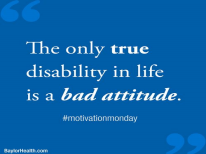An inclusive business culture involves diverse people’s full and successful integration into a workplace or industry. While an inclusive business culture certainly encompasses a commitment to workplace diversity, it is not limited to basic representation; it indicates a climate in which respect, equity, and positive recognition of differences are all cultivated and the social and institutional response to disability poses no barrier to a positive employment experience.
Additionally, inclusive business cultures extend beyond the basic or token presence of workers who have disabilities. They encompass both formal and informal policies and practices, and involve several core values:
- Representation: The presence of people with disabilities across a range
of employee roles, and leadership positions - Receptivity: Respect for differences in working styles, and flexibility in tailoring positions to the strengths and abilities of employees
- Fairness: Equitable access to all resources, opportunities, networks, and decision-making processes
When workers with disabilities experience the benefits of inclusive business culture, they are likely to be more satisfied with the job and often correspondingly more loyal and invested in the work product and performance. In addition, a disability-inclusive business culture often will provide positive results for overall employee satisfaction and productivity among workers with and without disabilities. This occurs because when an organization commits to equity, flexibility, and professional development for workers with disabilities, it frequently will generate more employer responsiveness to the individual capacities, health needs, or varying work preferences of employees who may not identify as people with disabilities. In other words, inclusive business cultures promote healthy and functional organizational environments.
In this brief, we review three elements of an inclusive culture: Read the entire article by clicking on the following link: An Inclusive Culture

